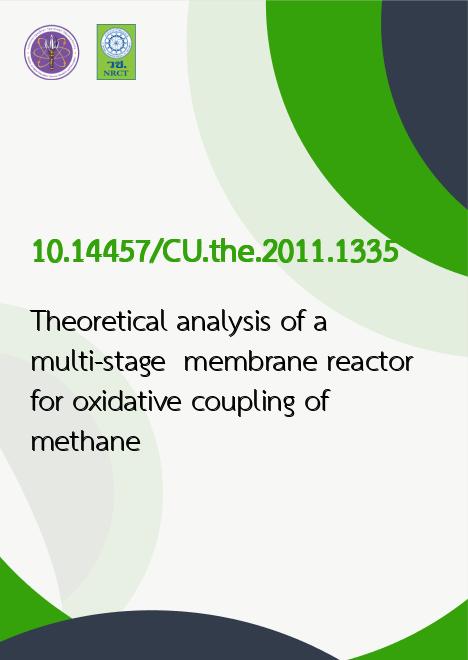
|
Theoretical analysis of a multi-stage membrane reactor for oxidative coupling of methane |
|---|---|
| รหัสดีโอไอ | |
| Title | Theoretical analysis of a multi-stage membrane reactor for oxidative coupling of methane |
| Creator | Sirikarn Tiraset |
| Contributor | Amornchai Arpornwichanop |
| Publisher | Chulalongkorn University |
| Publication Year | 2554 |
| Keyword | Methane, Methane -- Oxidation, Membrane reactors |
| Abstract | Oxidative coupling of methane (OCM) is a promising route for the production of ethylene by fully utilizing the abundance of methane feedstock. However, this process suffers from the relatively low selectivity and yield of ethylene at a higher methane conversion due to the complete oxidation of methane and ethylene products. To overcome this limitation, the application of a membrane reactor in which oxygen selective membrane is used to prevent the deep oxidation of a desirable ethylene product is a potential alternative. In this study, a multi-stage dense tubular membrane reactor is proposed to improve the performance of the oxidative coupling of methane. Mathematic model of the membrane reactor based on conservative equations and detailed OCM kinetic model is employed to analyze the effect of key operating parameters such as temperature, methane-to-oxygen feed ratio and methane flow rate, on the efficiency of the OCM process in terms of CH4 conversion, C2 selectivity and C2 yield. Adjustment of feed distributions at each membrane stage under isothermal and non-isothermal conditions is also studied. The performance of the multi-stage membrane reactor is compared with a single stage membrane reactor. The result shows that the distributed feeding policy improves the performance of the OCM process. A surface response technique is further employed to determine the optimal operating condition of the OCM process with the aim to maximize the C2 products. |
| URL Website | cuir.car.chula.ac.th |